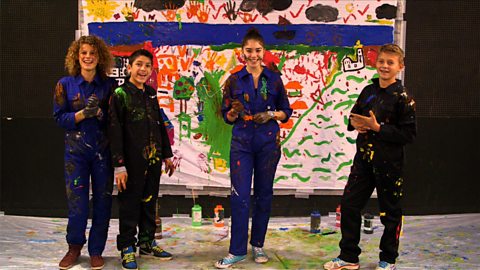PHONE RINGS
RINGING CONTINUES
Salut Ben.
Salut Ulysse.
Weren't we supposed to have a chat before school?
Je suis désolé. Quelle heure est-il? Il est sept heures trente.
Zut! Je suis en retard.
Je suis toujours en retard.
Pourquoi?
À quelle heure tu te réveilles?
Je me réveilles à sept heures.
ALARM BUZZING
Mais…pas toujours.
ALARM STOPS
Next I mean ensuite.
Ensuite je prends le petit déjeuner. Je termine à sept heures et quart
He finishes breakfast 'à sept heures et quart ?'
That's…seven and a quarter. I get it. Quarter past seven.
And are you always on time?
À sept heures et quart ?
Oui !
Vite ! Il est sept heures et quart !
En fait non. À sept heures vingt je brosse mes dents. À sept heures trente-cinq je m'habille. Et je fais mon sac. À huit heures moins le quart je prend le bus.
Huit heures moins le quart ?
If 'moins' is minus and 'quart' is quarter 'huit heures moins le quart' must mean eight minus a quarter.
So at a quarter to eight you take the bus.
Ou je prends le vélo !
Je suis toujours en retard !
So it's 7:36 now.
Hang on. Aren't you an hour ahead in France?
Et maintenant quelle heure est-il ? Il est sept…Non! Huit heures trente-six !
Oui huit heures trente-six ! Oh zut ! Je suis en retard !
À plus tard Ulysse !
Ciao Ben.
Video summary
Ben is keen to practice and improve his French. He links up online with Ulysse in Marseille and follows his early morning routine.
We meet Ulysse when he is still asleep in bed.
He has forgotten that he has arranged to have a breakfast chat with Ben. Ulysse has overslept.
We then watch Ulysse as he eats breakfast, brushes his teeth and gets dressed.
He takes far too long to get ready and is easily distracted.
Ben takes the opportunity to practice telling the time in French.
Most days Ulysse catches the bus at a quarter to eight.
School starts at 8. 15. But it is now already 8.30.
Ulysse has missed the bus and is already late for school.
He jumps on his bike and cycles as fast as he can.
This clip is from the series Virtually There: France.
Teacher Notes
This clip could be used to support pronunciation by highlighting silent h in heure/heures. Highlight rising intonation in the question Quelle heure est-il?
You could play the game 'What’s the time Mr. Wolf?' with younger pupils, Quelle heure est-il Monsieur Loup to practise telling the time in French.
Ask pupils to describe their early morning routine.
What time do they get up? When do they have breakfast?
These clips could be used for teaching French at KS2 in England, Foundation KS1,KS2 in Northern Ireland, KS2 and KS3 in Wales and 2nd Level in Scotland.
Following directions. video
An English schoolboy helps two of his French friends find a cafe.
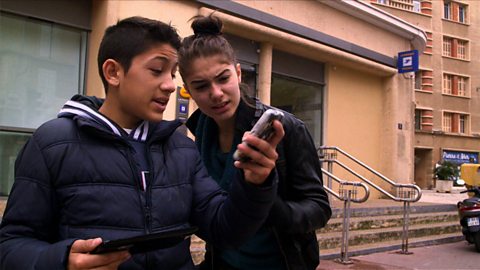
How to introduce yourself. video
Ben links up online with children in France and practices French greetings before they take him on a virtual tour of their neighbourhood.
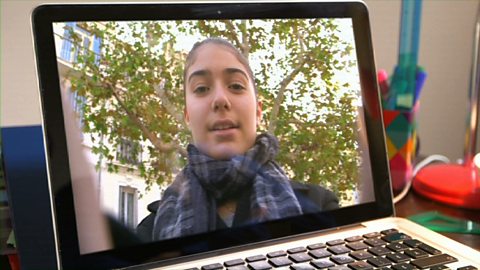
Meet the family. video
An English schoolboy meets a French family through the use of a tablet.
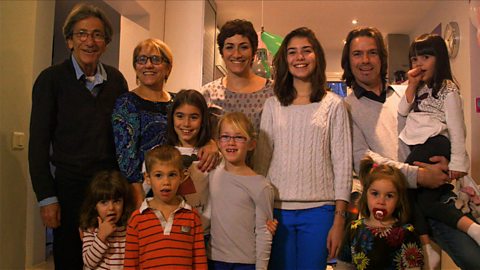
Favourite hobbies. video
Ben is waiting for his Mum to take him to his swimming lesson so decides to link up online with his friends in Marseille to find out their hobbies.
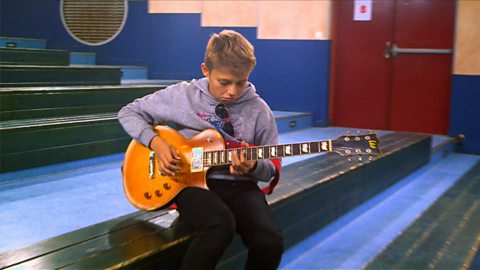
Shopping for food. video
Ben links up online again with his friends in France who are in a supermarket buying ingredients to make pizzas for a 'Pizza Party'.
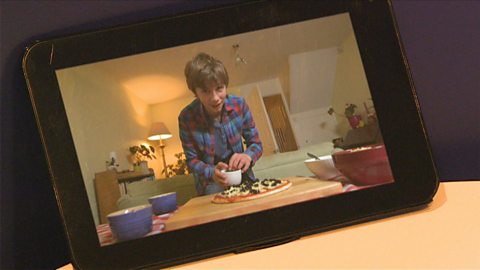
Masculine and Feminine body parts video
A lively song to practise parts of the body with a focus on masculine and feminine nouns.
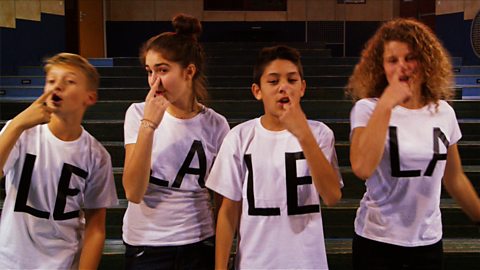
Clothes and colours. video
A lively song to practise vocabulary for clothes and colours and a variety of other adjectives.
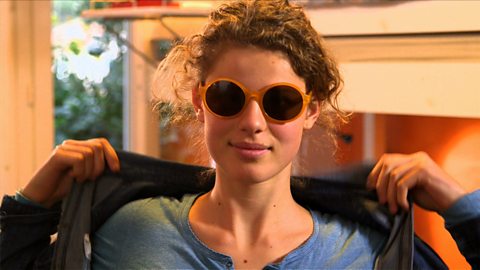
Days of the week. video
A lively song to practise the days of the week. A clip from a series teaching the basics of French.
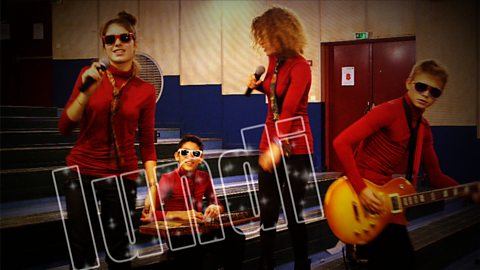
Painting together. video
Ben is keen to improve his French. He links up online with friends who are painting.
